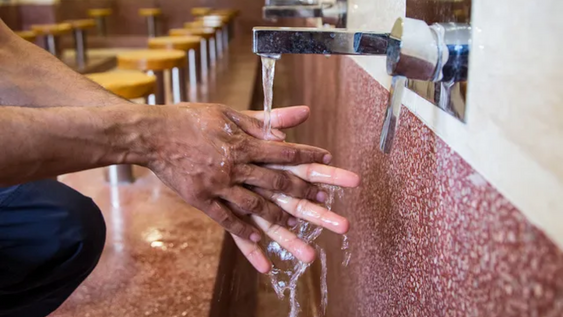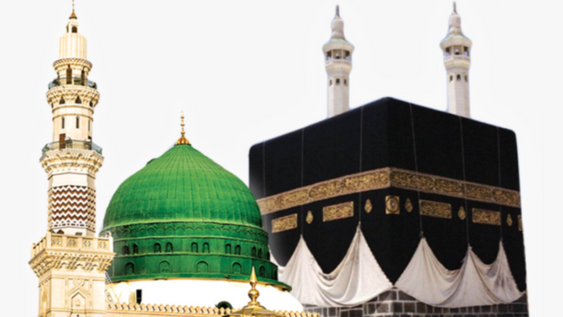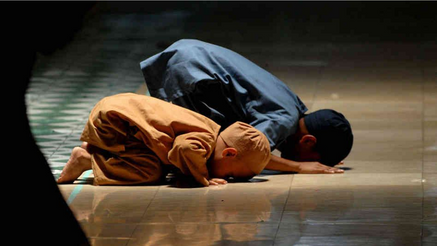Islam has five main pillars, the devotional practices, which are to be performed by every true Muslim. Prayer or Salah is one of them. It is mandatory to perform Salah five times a day. Making ablution is obligatory before performing Salah. Ablution is a process of gaining purity before offering Salah. Gaining purity or Paaki is a must for every Muslim before offering Salah. The ablution starts with Istinja, which means removing or cleaning after urinating or defecating. It is an obligatory step before starting ablution. Then comes the process of ablution. This process has many steps to follow. Some are Faraez means obligatory steps, and some are Sunan. These steps will be rewarded by Allah SWT. If any step is skipped by someone, the ablution will be considered complete. There are four “Faraez e Wudhoo” means Compulsions of the ablution. These Faraez are
To wash someone’s face three times.
Wash both hands properly, along with the arms and elbows.
Wiping the head
Washing foot three times, including ankles.
The face should be washed properly, from the forehead to the lowermost part of the chin. Similarly, the hands washed properly, any filth or dirt stuck, must be removed properly, and wiping the 1/4th part of the head is mandatory. The feet should be washed three times.
Sunnan of Ablution
Now comes the Sunnan of ablution, which means the steps followed repeatedly by Holy Prophet Hazrat Muhammad SAW during ablution every time. There is a difference of opinion of religious scholars in the number of Sunnan of ablution. The number ranges from 13 to 18, we will discuss the agreed upon 13 sunnah of ablution.
Make deliberate intention (niyyat) for performing ablution.
To start ablution after reciting Bismillah hir Rahman ir Raheem.
Wash hands three times with handcuffs.
Clean teeth with a tooth cleaning stick.
Rinse and clean the mouth, three times.
Washing and cleaning nose and nasal cavity three times.
“Comb” the fingers of hands and feet with fingers. (Khilaal krna)
Wash every organ in ablution thrice.
Wipe the complete head once.
Wipe the ears, along with the head wiping.
Wash all the organs successively.
Make ablution in the told manner and perfect order.
Recite dua after finishing ablution.
Making a deliberate intention or niyyat is the necessary step before performing any religious obligation. Such is the case with making ablution. Intention (Niyyat) is the first Sunna of making ablution. Tasmia or Bismillah hir Rahman nir Raheem is the verse to be recited before starting every religious obligation or noble deed. It is a prayer to Allah Almighty for his forgiveness and mercy.
Making ablution is a noble deed, so Tasmia should be recited before making wadhoo. Washing hand is the first step of making ablution. Ablution has started with the process of Istinja. And the hands must have received filth on them, filth and contamination stuck on the hands must be cleaned with both handcuffs. It should be done thrice. Using a tooth cleaning stick is another important Sunna of Wudhoo. That was very dear to Rasool ul Allah SAW. Wash the nose and internal nasal cavity is another sunnah. It should be done using the left hand. Khilaal krna (to comb fingers of both hands and feet, with the help of fingers of hands) is also a Sunnah. Another important Sunna of Rasool e Akram SAw is to wash every organ in ablution thrice. Wiping the 1/4th part of the head is a compulsion of ablution, wipe the complete head, only once is a Sunna. Wipe ears with wiping the head is also a part of Sunna. Succession is another Sunna of ablution. It is necessary to make ablution successively, as all the organs should be wet when ablution is complete. Another important sunna is to make ablution in the order, as told by Prophet SAW. This means you should not wash your feet at the beginning of ablution or wash your hands at the end. The last sunna of ablution is to recite dua, at the end of ablution.
Ablution is not only mandatory for offering Salah. But it is also compulsory for every religious obligation, like reciting Holy Quran, offering Manasik e Hajj,
and entering the mosque. It is the minimum level of cleanliness or Tahaarat in Islam, which is compulsory for offering almost every religious obligation. It should be made in a way so that you might get the perfect Tahaarat for performing religious practices.











